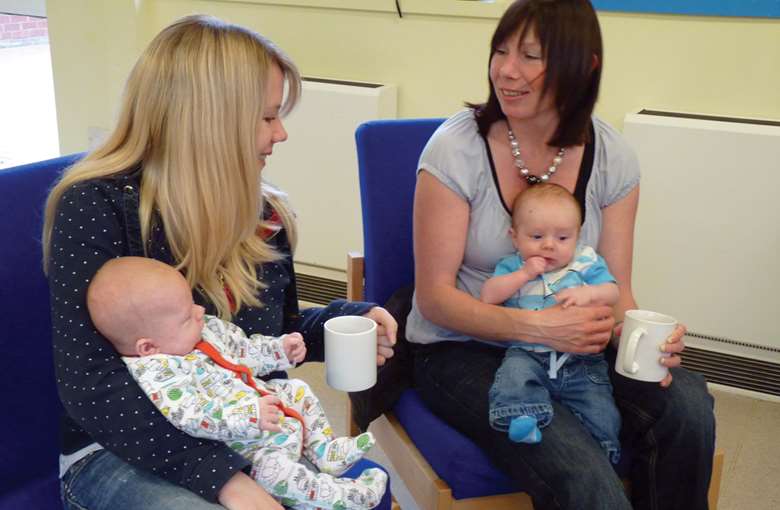Good Idea: 'Baby brasseries' promote benefits of breastfeeding
Gabriella Jozwiak
Tuesday, July 9, 2013
An NHS trust in Bedfordshire has laid down foundations for tackling low breastfeeding rates.

The number of women breastfeeding in the UK is rising. In 2010, NHS statistics showed 55 per cent of women in England were breastfeeding six weeks after birth at least some of the time, compared to 48 per cent in 2005. Breastfeeding campaigners say this is significant because research has shown breastfeeding protects mothers from breast cancer in later life and helps to reduce the risk of eczema, asthma and obesity in children. Charity Unicef says even moderate increases in breastfeeding could lead to cost savings of £40m for the NHS.
Such findings prompted Bedfordshire's NHS Trust to undertake a three-year project in 2010, aimed at improving the low breastfeeding rates in the county. They followed the Baby Friendly Initiative, a global programme set up by Unicef and the World Health Organisation in the 1980s to improve breastfeeding rates.
Unicef Baby Friendly co-ordinator Jacky Syme at the South Essex Partnership University NHS Foundation Trust says work began by training health staff. "You'd be surprised how many midwives don't have the discussion about breastfeeding," she says. "In the developed world, women don't often see breastfeeding in public, so they don't know how to hold or attach a baby. We've done lots of work around getting the staff skilled-up to a standard where they can talk the talk, show the mother what to do and keep her positive."
The programme also requires health services to protect breastfeeding by upholding an international code of marketing for breast milk substitute. Syme says local health services have discouraged formula promotion in Bedfordshire. "We don't allow formula milk company reps to come into our clinics," she says. "If they want to provide us with information, we will meet them and cascade it to the staff."
Once the trust had worked on its baby-friendly policies and supported staff, it turned to looking at how to support mothers. The result was a system of "baby brasseries" - groups where mothers could meet other mothers and health professionals to discuss breastfeeding over coffee. "We decided to hold them in children's centres because they are friendly places that are less clinical," says Syme. "I asked the local authorities to join with us and we trained all the children's centre staff to the same level as us." Bedfordshire now holds weekly baby
brasseries at 14 locations, attracting from five to 20 mothers at each session.
Health visitors have promoted the gatherings by handing out information to all pregnant women in the area. "We call the postnatal women at six days after the birth and ask them about their feeding. Then we say if they'd like extra support they can meet us at the baby brasserie," she says.
Women who are breastfeeding only some of the time are also invited to the sessions. Syme says it is important the women start early before they are influenced by other mothers who are not breastfeeding. "There might be women who are bottle feeding and talking about how easy it is - it can knock their confidence," she says. "But any breast milk is better than no breast milk."
The project also held a "Model Mum" competition in 2011. A local 17-year-old won the opportunity to become the face of the breastfeeding campaign. Connie Scharff said breastfeeding gave her a special bond with her son.
In May, the health service was awarded full Unicef Baby Friendly status. Only 23 areas in the UK have the accreditation, which is awarded following annual assessments by Unicef that includes interviews with health staff and women accessing the services.
Sue Ashmore, director of the Unicef Baby Friendly Initiative programme, said: "I really believe that Bedfordshire could be a beacon site for the whole of the UK. Mothers in Bedfordshire can be confident they will receive the very highest standards of care."
For more on the campaign, visit www.sept.nhs.uk/Community-Health/Bedfordshire-Community-Health-Services/Baby-Friendly.aspx




